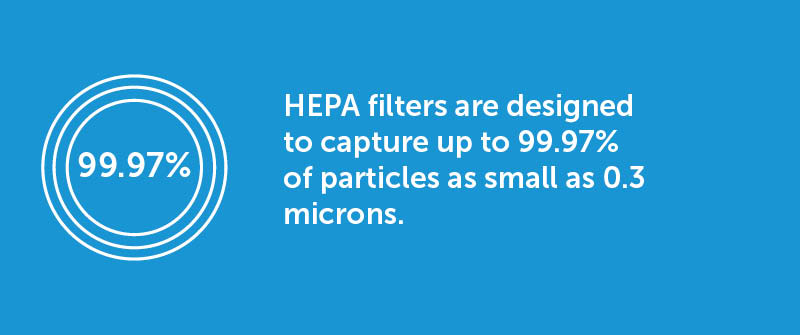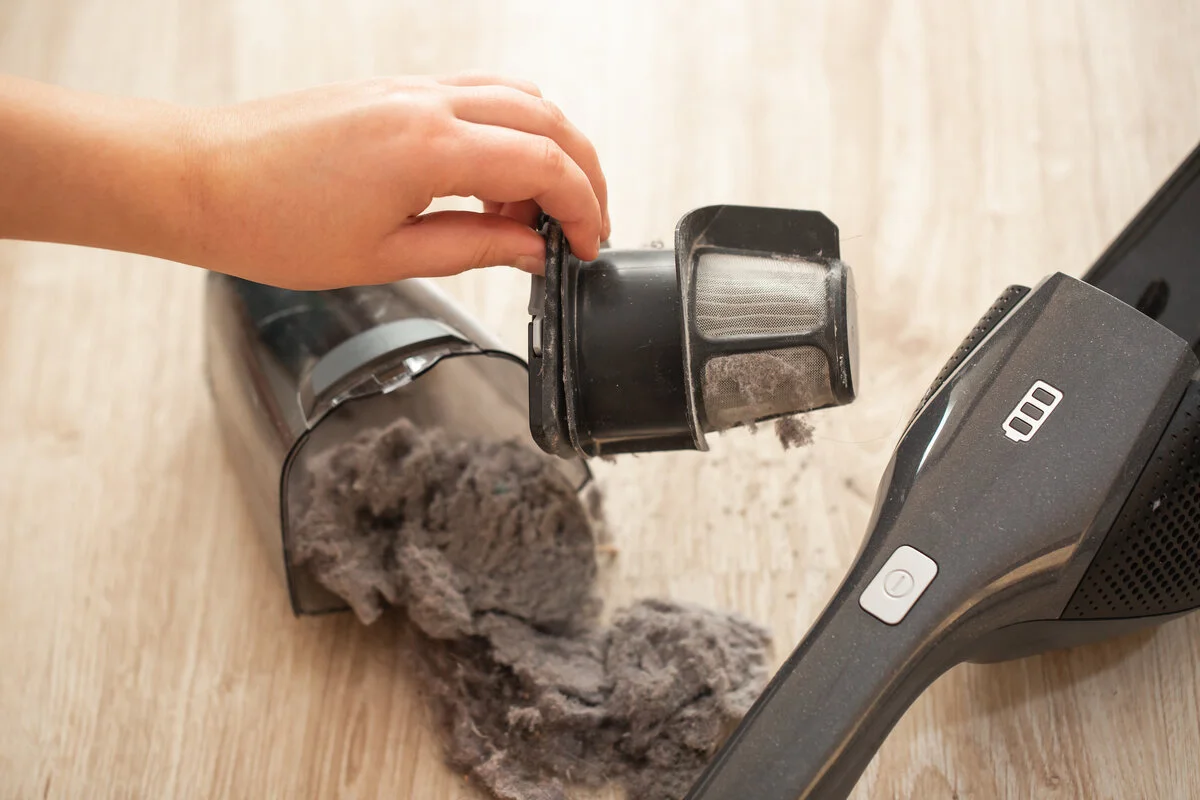What Type of Vacuum Filter Is Best?
Choosing the best vacuum filter can be a bit daunting with so many options available. The type of vacuum filter you choose can significantly affect the overall cleanliness of your home, especially if you have specific health or maintenance concerns. Filters are usually categorized based on the materials they are made from and their filtration efficiency. Air purifiers, alongside HEPA filters, play a crucial role in improving indoor air quality by trapping allergens and particulates, making them particularly useful for individuals with respiratory issues.
Comparison of Different Types of Vacuum Filters
The market offers a variety of vacuum filters, including HEPA filters, foam filters, and even cloth or paper filters. HEPA filters, known for their high-efficiency particulate air cleaning capability, are often praised for their ability to capture tiny particles like dust mites and pet dander. Foam filters, on the other hand, are excellent at capturing larger debris and are often washable, making them a long-term solution.
Find out if you wash and reuse a vacuum filter!
Benefits of Using HEPA Filters
HEPA filters stand out for their high filtration standards. A true HEPA filter is designed to trap at least 99.97% of particles that are 0.3 microns or larger, including small particles such as pet dander, mold, and dust, making them a top choice for people with allergies or those concerned with air quality. However, they might need regular replacements and could be a bit pricier compared to other types.
Usage of Foam Filters
Foam filters are generally found in combination with other types of filters to enhance the filtration process. They are washable and can be reused multiple times, which makes them quite economical. Foam filters are often chosen for vacuums where cleaning larger debris and ensuring a swift air flow are priorities.
Considerations for Specific Cleaning Needs
Ultimately, the best vacuum filter for you depends on your specific cleaning needs. If you struggle with allergens, a HEPA filter is likely your best option. Canister vacuums are particularly effective in picking up allergens and finer particles, thanks to their advanced filtration systems. For those primarily concerned with general dust and debris, a foam filter might be sufficient. Always consider the ease of maintenance and replacement costs when making a decision.

Which Is Better: Foam or HEPA Vacuum Filter?
When it comes to choosing between foam filters and HEPA filters for your vacuum cleaner, there are several factors to consider. Both types of filters have distinct advantages and drawbacks, depending on your specific cleaning needs and the type of environment you’re working in. HEPA filter vacuums are particularly effective in trapping small particles like pollen, pet dander, smoke, and dust mites, making them ideal for allergy and asthma sufferers.
Pros and Cons of Foam Filters
Foam filters are typically lightweight and highly affordable, making them a popular choice for everyday cleaning tasks. They are also relatively easy to clean, often requiring just a rinse and dry before reuse. However, foam filters are not as effective at capturing very fine particles such as allergens, pollen, or mold spores. This might limit their utility for individuals dealing with respiratory issues or extreme sensitivities.
Pros and Cons of HEPA Filters
On the other hand, HEPA filters, which stand for High-Efficiency Particulate Air filters, excel at trapping a wide array of small particles, including dust, allergens, and even some bacteria. Compared to non-HEPA vacuums, HEPA vacuums are specifically designed to significantly reduce allergens in the home, making them particularly advantageous for people with asthma or allergies. Given their high efficiency, they are particularly recommended for allergy sufferers or in environments susceptible to molds and fine dust, such as construction sites. However, HEPA filters can be more expensive and require regular replacement for optimal performance, which might add up over time.
Effectiveness for Different Types of Dust and Allergens
If you are dealing with general household cleaning and not particularly worried about microscopic particles, a foam filter might be sufficient. However, for households with pets, young children, or individuals with allergies, a HEPA filter vacuum could make a significant difference in maintaining cleaner and healthier air. HEPA filters are highly effective in removing 99.995% of harmful airborne particles, making them ideal for individuals with respiratory issues or allergies.
Recommendations Based on Specific Application Needs
In conclusion, if you’re focused primarily on cost-efficiency and simplicity, a foam filter is a solid choice. However, if your goal is to maximize air purity and reduce potential allergens effectively, especially in sensitive environments, investing in a vacuum equipped with a HEPA filter would be more beneficial. The best HEPA vacuums are particularly effective in removing allergens such as pet dander and small particles from various surfaces, filtering out 99.97% of particles, making them ideal for families with pets or children. Always consider your personal needs and preferences when selecting the best vacuum filter option for your cleaning routine.
Are Vacuums with HEPA Filters Better?
Can you put a HEPA filter in any vacuum? When it comes to ensuring a cleaner and healthier home environment, vacuums with HEPA filters are often considered superior. This is primarily because of their exceptional ability to trap fine particles, which sets them apart from standard vacuum filters. HEPA filters are designed to capture up to 99.97% of particles as small as 0.3 microns. This includes not only visible dust and dirt but also allergens and microscopic pollutants that can exacerbate respiratory issues. The Shark NV360 Navigator Lift-Away Deluxe Upright Vacuum is often highlighted as the best HEPA vacuum, emphasizing its affordability and efficient cleaning performance across various flooring types.
Advantages of Using Vacuums with HEPA Filters
One of the key advantages of using a vacuum equipped with a HEPA filter is its efficiency in improving indoor air quality. For those suffering from allergies or asthma, a HEPA vacuum can make a noticeable difference by significantly reducing allergens like pollen, pet dander, and dust mites circulating in your home.
Moreover, HEPA vacuums are particularly effective in capturing dangerous particles such as mold spores and construction dust. These particles can be extremely fine and may go unnoticed with less efficient filters. Therefore, investing in a HEPA vacuum is a proactive step in safeguarding your health, especially after home renovations or construction work.
Long-term Maintenance and Costs of HEPA Vacuums
While HEPA vacuums provide great benefits, potential owners should consider the long-term maintenance and costs associated with them. HEPA filters need to be replaced periodically to maintain their efficiency, which could incur additional costs. However, the health benefits and enhanced air quality offered make them a worthwhile investment.
For those looking to make a higher upfront investment for significant health gains and superior cleaning performance, choosing a vacuum with a HEPA filter may just be the right decision.
What Is the Easiest Vacuum Filter to Clean?
Keeping vacuum filters clean is crucial to ensuring your vacuum performs optimally and extends its life. But what type of filter is the easiest to maintain? Let’s explore the various cleaning methods available for different filters.
Comparison of Cleaning Methods for Different Filters
Different vacuum filters have distinct cleaning requirements, impacting their ease of maintenance. Foam filters, for example, are known for their straightforward cleaning process. These filters can typically be rinsed under running water and dried before reuse, making them a popular choice for high-traffic homes.
On the other hand, HEPA filters require a little more attention. While some HEPA filters are washable, others might need to be replaced after extended use to maintain efficiency and prevent clogs from reducing performance. It’s crucial to check the manufacturer’s guidelines on whether your HEPA filter is washable.
Tips for Maintaining Foam Filters
Foam filters are generally low-maintenance. For most models, simply rinsing them under warm water is enough to clear out dirt and debris. Ensure that the filter is completely dry before reinstalling it in the vacuum to prevent mold or mildew growth.
Guidelines for Cleaning HEPA Filters
When it comes to cleaning HEPA filters, follow the instructions in your vacuum cleaner manual. Some models offer reusable HEPA filters that can be gently washed. However, for non-washable versions, a gentle tap to remove dust or using a vacuum cleaner to draw out the debris can suffice until a replacement is necessary. Keeping a rotating schedule for filter replacement can help maintain optimal performance over time.
For those looking for the easiest cleaning solutions, foam filters stand out for their simplicity and convenience. If you prioritize keeping indoor air quality at its best, HEPA filters should be a part of your cleaning arsenal. At Discount Filters, we offer a vast selection of high-quality filters that take the guesswork out of maintaining a clean home. Count on us to help you find the perfect vacuum filter that suits your lifestyle and demands!

